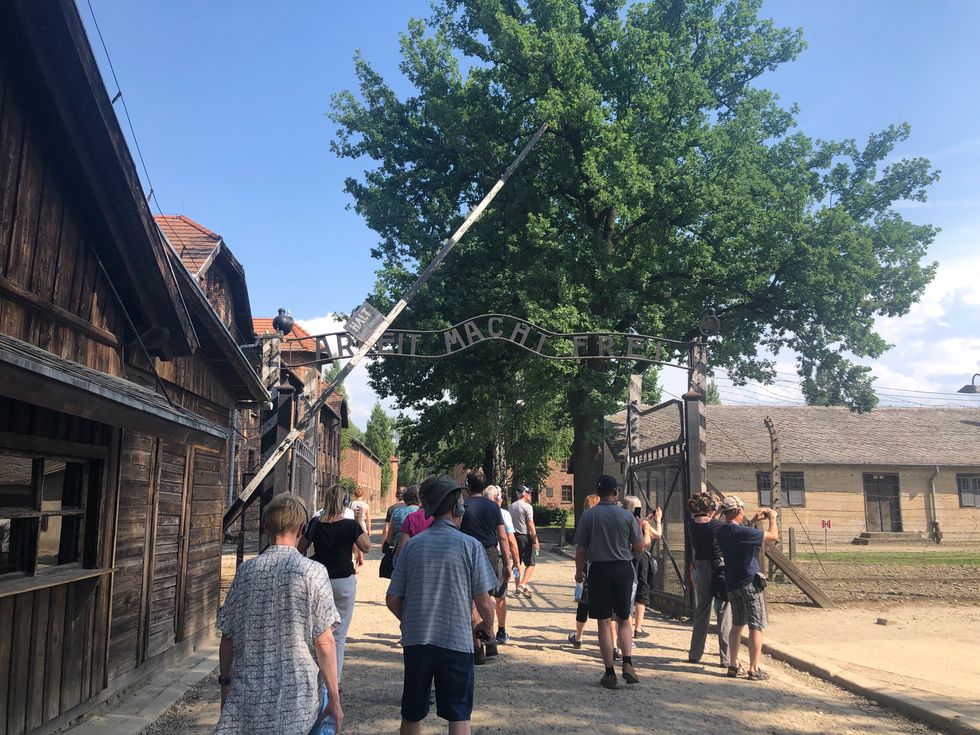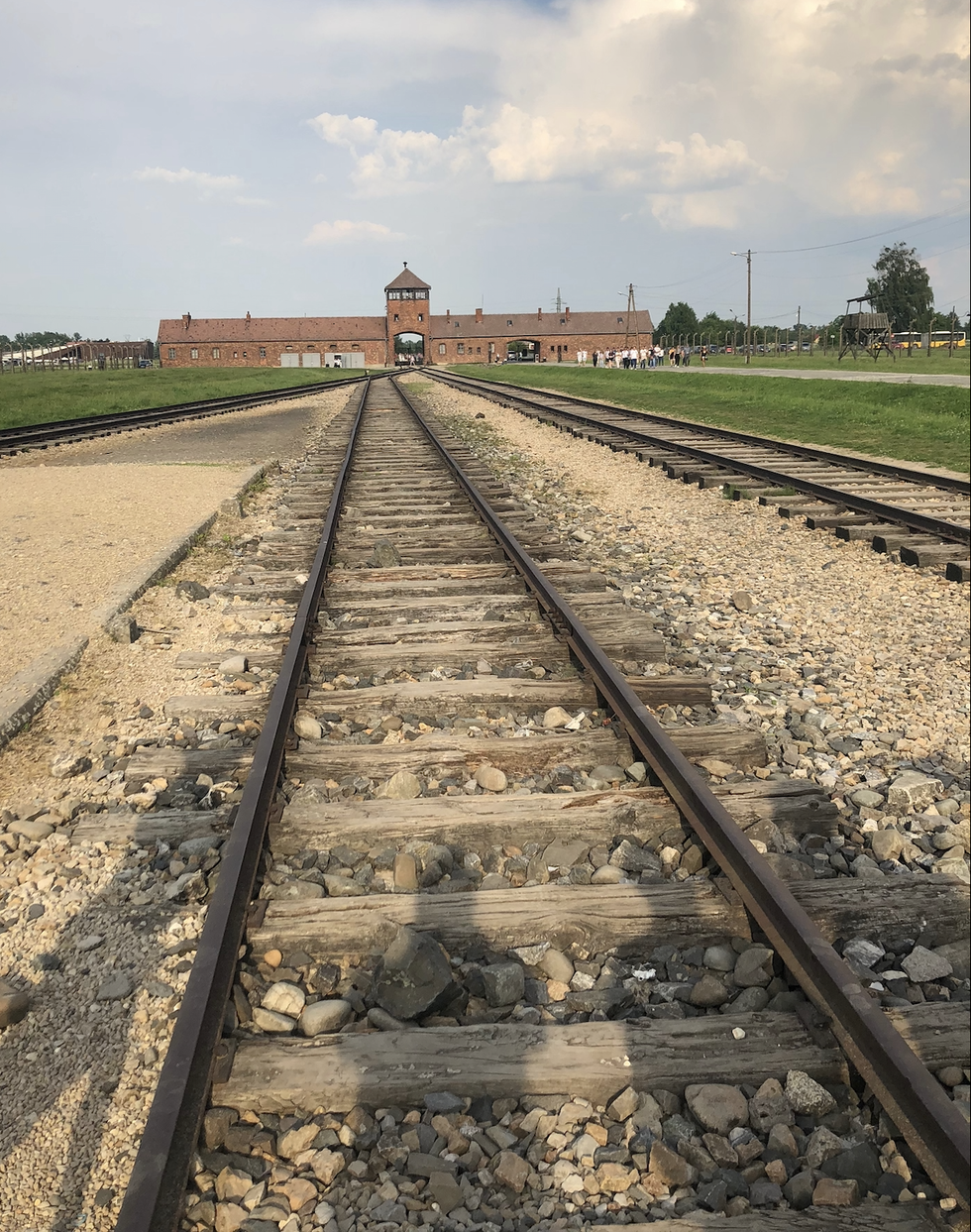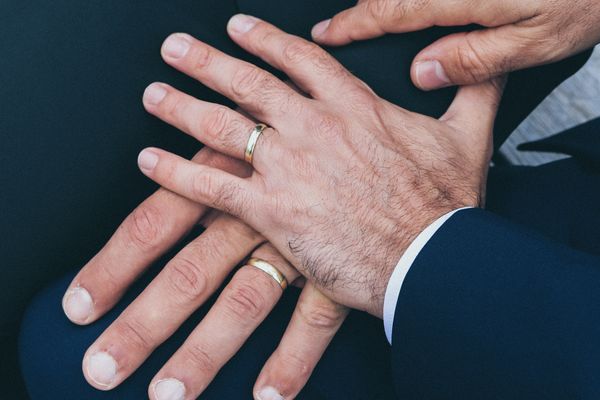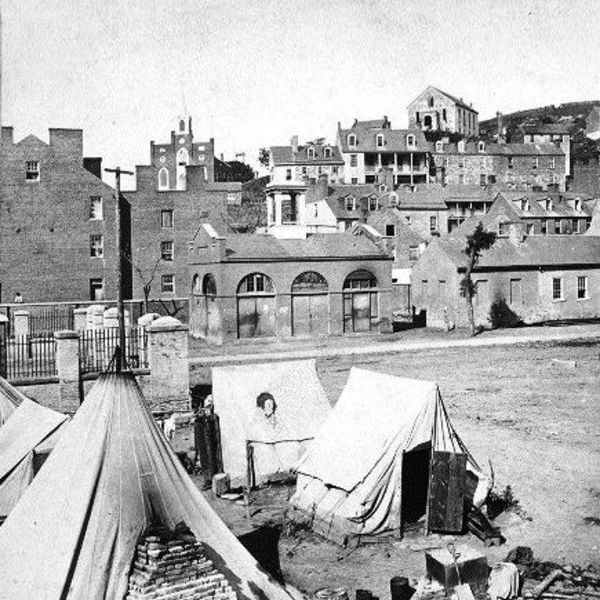I went on study abroad to Poland and the Czech Republic in my sophomore year of college.
On this trip, we went to Krakow, Poland, about two hours away from one of the most notorious concentration camps in history. I got the opportunity to go to the concentration camp that had the most deaths recorded in history, Auschwitz II-Birkenau and Auschwitz.
I never in my life thought that I would have had the chance to go walk through it.
I have always been interested in the holocaust and trying to understand how something so awful could happen. I can never even begin to understand how someone has so much hate in their heart to wipe out entire generations of people.
As soon as you walk in, you see the sign in German that Nazis used to mock the workers, "Arbeit Macht Frei," this translates in English to "Work Will Free You." Reading that sign sent chills down my spine.

There is a sense of sadness that overwhelms you almost as if a dark cloud is just covering this land. While no longer in operation, the camp still looks as it did in 1939. You get to walk in the barracks where thousands of innocent people died from inhumane conditions.
You never realize how many people were affected by the Holocaust until you enter one of the barracks.
One of the barracks houses one of the last pieces of evidence of the Jewish population that perished here. There are rooms filled with hair, shoes, glasses and more of people's common possessions that were taken from them that you see behind glass in this room.
Walking out through one of the hallways, you see rows upon rows of pictures of inmates with their picture, age, year of death, and why there were there. Some as young as 18 were there for being gay, gypsy, black, or Jewish.
You realize this had been happening for years without people batting an eye, you see this through the rows upon rows of perished people at this one single camp.
Taking a bus, you go to the second part of the camp. The infamous gate that millions saw on what would be a one-way trip.

You see a cattle car that millions of people arrived in. My heart instantly shattered.
Hearing the songs and chants of the people walking by who are Jewish breaks your heart, the sense that one person can implement such genocide to such a great number of people. You see the resilience of the ones who are here to honor their ancestors before them.
Seeing the destruction of evidence fills you with fury and sadness that these people caused this to happen.
This fury and sadness are felt by every person walking on this ground. The immeasurable impact this had on the future amazes me.
Throughout this experience, I had something running through my head. I had a constant thought that never left my mind since I stepped foot on that soil, "never again."
Never again is the new resolution we all need to remember.
Never again can we let one person cause so much destruction.
Never again can we oppress an entire generation for their religious choices.
Never again can we let one man have that much power.
Never again can we let so much hate be allowed in our world.
Never again can we let the Holocaust repeat itself.
Never again.





















